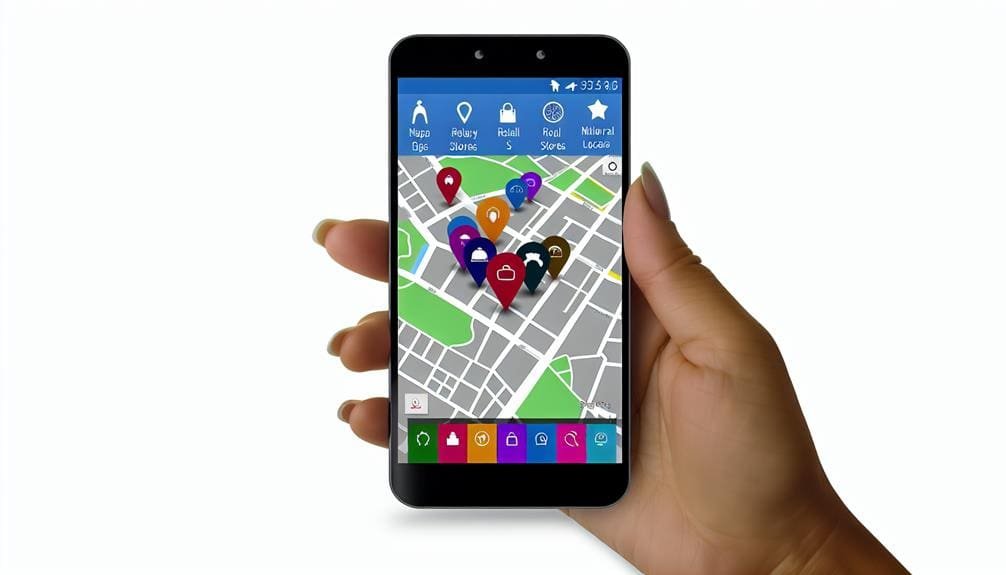Enhance Your Mobile SEO for Geotargeted Searches
February 3, 2024 | by Jacob Cavazos

When 60% of searches come from mobile devices, and a significant portion of those are looking for local information, it's clear we need to optimize our mobile SEO strategies for geotargeted searches. We're at a pivotal moment where local mobile search optimization can make or break our online visibility. By tailoring our content to specific regions, we're not just casting a net; we're aiming with precision to meet users exactly where they are—both literally and in their customer journey. Implementing tactics such as optimizing for local keywords and enhancing our local business listings can significantly impact our search rankings. But what specific steps should we take to ensure that our websites and content are not only discoverable but also relevant and compelling to a local audience? Let's explore how to fine-tune our mobile SEO approach to capitalize on the growing trend of location-based searches, and consider what innovations might be on the horizon that could further enhance our geotargeting success.
Assess Mobile User Behavior
To effectively optimize our mobile SEO for geotargeted searches, we must first thoroughly assess and understand the behavior of mobile users. By examining the devices, platforms, and search patterns our audience prefers, we can tailor our mobile SEO strategy to meet their specific needs. This involves not only looking at the types of queries that lead to our site but also understanding the intent behind local searches.
We've seen that by leveraging insights into popular search queries, preferred content formats, and interaction patterns, we can create more targeted and engaging content. This is paramount for appealing to users who increasingly rely on mobile devices to find information quickly and efficiently. Our commitment to optimizing for mobile includes implementing a responsive web design and structured data, which are vital for enhancing search results visibility and user experience.
Additionally, analyzing mobile traffic enables us to measure user engagement, conversion rates, and overall satisfaction. These metrics are crucial for improving our search engine optimization (SEO) efforts continuously. To stay competitive, we must adapt our strategies based on user behavior data, ensuring our local search content is not just found but also resonates with the specific geographic audiences we aim to reach.
Optimize for Local Keywords

Having assessed mobile user behavior, we now turn our focus to enhancing our website's presence in local search results by optimizing for local keywords. We recognize that to effectively target users in specific geographic locations, our local SEO strategy must prioritize the integration of local keywords into our website's content, meta tags, and headings.
To optimize their online presence, businesses should construct location-specific landing pages that cater to the needs of users in specific geographic areas. This approach is not only beneficial for optimizing for mobile searchers but also improves search engine rankings by signaling relevance to Google's algorithms.
By listing on Local Business Listings and Google My Business, we ensure our business details are accurate and consistent, which strengthens our local SEO efforts. We actively encourage customer reviews and testimonials that include local keywords, as these enhance credibility and further boost our visibility in local search results.
In our quest for mastery, we leverage online tools to meticulously track and adjust our local keywords strategy. This data-driven approach ensures we remain agile and responsive to the ever-evolving search landscape, guaranteeing that we continually meet the precise needs of our mobile audience.
Leverage Location-Based Features

Let's harness the power of location-based features to better connect with our audience and enhance our mobile SEO performance. Here's how we can effectively utilize these features for geotargeted searches:
- Integrate Location-Based Keywords: We'll ensure our content is optimized for mobile search with terms relevant to local and geographic locations. This strategy taps into the rise of 'near me' queries, aligning our SEO efforts with user intent.
- Customize Local Content: By creating content that resonates with the local culture, we're not just optimizing for SEO; we're building a relationship with the community. This could involve blog posts, videos, or local event highlights that engage and convert local customers.
- Leverage Google Search Console: Utilizing this tool, we can monitor our performance in different locations and adjust our strategy accordingly. It's crucial for understanding how well we're reaching our target geographic areas.
- Utilize Social Media Geo-Features: Location-based features on social platforms enable us to target ads more precisely and appear in local search results, increasing our visibility to potential local customers.
Improve Mobile Page Speed

Boosting our mobile page speed is essential, as it directly influences user engagement and our site's search rankings. To improve mobile SEO, we must focus on actionable strategies that deliver a better user experience. A pivotal step is to optimize website content specifically for mobile, which includes compressing images and minifying code. By reducing file sizes, we ensure content for mobile loads swiftly, keeping the audience engaged.
Utilizing tools like Google's PageSpeed Insights gives us a data-driven approach to identify the precise bottlenecks slowing down our site. It's a crucial part of our Site Audit process, guiding us through necessary optimizations. Moreover, we can't overlook the impact of leveraging browser caching; it allows returning users to experience faster load times, which is vital for mobile search where speed is paramount.
Additionally, we're adopting accelerated mobile pages (AMP) to dramatically improve page speed. AMPs strip down the HTML to what's necessary for fast loading times while still delivering a rich user experience. By making these targeted changes, we're not just aiming to meet the baseline for mobile optimization—our goal is to exceed it, securing our position at the forefront of mobile search performance.
Monitor Geotargeting Performance

To effectively measure the success of our geotargeting tactics, we'll leverage tools like Google Analytics and Google Search Console to analyze mobile traffic data and adjust our strategies accordingly. These insights enable us to fine-tune our approach, ensuring that our mobile SEO efforts are as effective as possible in different geographic locations.
Here's how we monitor geotargeting performance:
- Traffic Analysis: We scrutinize mobile traffic sources to understand which geographic locations are driving the most visitors and how these users engage with our content.
- Conversion Tracking: We assess whether our geotargeted searches translate into higher conversion rates, indicating successful reach to our target audience.
- Search Rankings: We keep an eye on search rankings for local SEO, tracking how well our pages perform in search engine results for location-based queries.
- Content Optimization: We continuously refine our SEO strategies by optimizing content with location-based keywords to maintain relevance and visibility.
Frequently Asked Questions
How Do I Optimize My Mobile Seo?
We'll optimize our mobile SEO by improving page speed, enhancing user experience, and tailoring content optimization. We're focusing on mobile keywords, local listings, and implementing AMP, alongside leveraging schema markup and monitoring social signals.
Can SEO Be Done on Mobile Phone?
Yes, we can optimize SEO on mobile by focusing on mobile algorithms, ensuring responsive design, and improving page speed to enhance user experience, prioritize local listings, and refine mobile keywords for better content readability.
What Is Geo-Targeting SEO Strategy?
We're leveraging geo-targeting SEO by focusing on local optimization, language targeting, and understanding cultural nuances. We're integrating maps, refining content personalization, and using regional keywords to enhance user experience with behavioral and proximity factors.
How Do I Optimize SEO for Near Me Searches?
We're honing our SEO for 'near me' searches by embedding local keywords, securing business listings, and applying schema markup. We prioritize mobile-friendly design and map integration to meet user intent with hyperlocal content.
RELATED POSTS
View all



